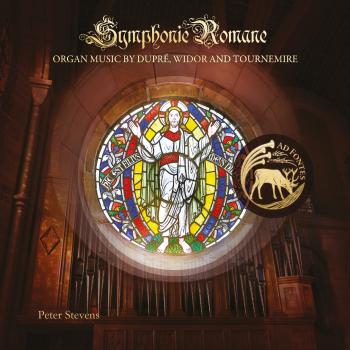
Magnard: Orchestral Works Philharmonisches Orchester Freiburg & Fabrice Bollon
Album Info
Album Veröffentlichung:
2020
HRA-Veröffentlichung:
24.04.2020
Label: Naxos
Genre: Classical
Interpret: Philharmonisches Orchester Freiburg & Fabrice Bollon
Komponist: Albéric Magnard (1865-1914)
Das Album enthält Albumcover Booklet (PDF)
- Albéric Magnard (1865 - 1914):
- 1 Overture in A Major, Op. 10 11:38
- 2 Chant funèbre, Op. 9 12:03
- 3 Hymne à la justice, Op. 14 13:34
- 4 Hymne à Vénus, Op. 17 13:30
- Suite d'orchestre dans le style ancien, Op. 2:
- 5 Suite d'orchestre dans le style ancien, Op. 2: I. Française. Allegro giocoso 02:48
- 6 Suite d'orchestre dans le style ancien, Op. 2: II. Sarabande. Mesto 02:06
- 7 Suite d'orchestre dans le style ancien, Op. 2: III. Gavotte. Allegro 02:16
- 8 Suite d'orchestre dans le style ancien, Op. 2: IV. Menuet. Tranquillo 04:53
- 9 Suite d'orchestre dans le style ancien, Op. 2: V. Gigue. Energico 02:11
Info zu Magnard: Orchestral Works
Composer, conductor and pianist Thomas Adès has been described by The New York Times as among the most accomplished all-round musicians of his generation. His Concert Paraphrase on Powder Her Face reflects the glamour of the operas subject in the grand manner of Liszt or Busoni, while Still Sorrowing and Darknesse Visible explore John Dowlands haunting lute works. Heard here in its world premiere recording, competition piece Blanca Variations is lyrical and flowing in character, and Traced Overhead is a vivid description of ascent and flight. Adès captures and transforms Polish style in his Mazurkas, and the spirit of Satie and Ravel in a Souvenir from the film Colette.
"Magnard’s music demands a lot from his interpreters. His orchestral works represent a large mix of the styles of his time. It is very important to find a singular approach to this music and not to present it as a kind of puzzle or mosaic of styles, nor as a kind of experimental mix, but to delve into it and find its true secrets. This music doesn’t open itself up easily; as a result it requires a very open approach. As with Sleeping Beauty, one has to explore different avenues before finally discovering the one that brings her back to life. Having done this with Magnard’s music and finally hearing the completed recording, you feel like Prince Charming who thinks that his bride is even more beautiful than he had first thought." (Fabrice Bollon)
"Having recently released the complete symphonies, Naxos now explore some of Alberic Magnard’s sizeable number of orchestral works written in his short life. His family background was one of comfortable affluence, his desire to become a composer eventually taking him to Paris where he became a pupil of Vincent d’Indy. From therein he moved to the French countryside where he rather lost contact with the events that were unfolding in the European music scene. It left him composing in a time-warp, his influences from other French composers being minimal, his leaning towards Germanic music arising from his admiration of Richard Wagner, his scoring somewhat dense in texture as we find in the two opening tracks dating from his thirtieth year in 1895, the second one, the Chant funebre, a suitably sombre score relating to his father’s death. The composer did not engender an increased following by his support of Alfred Dreyfus, and the political scandal that ensued, but it drew a response in the Hymne a la justice, an angry outburst at the lack of justice in the world. By the time he composed the Hymne a Venus, the affair was over in the way Magnard wished, and now, dedicated to his wife, we have a work of repose and some unexpected vitality. He was still a student of d’Indy, when in 1888 he composed the five-movement Suite d’orchestre dans le style ancien, its five movements were in dance form. He was later to revise the orchestration, the result lightweight and of considerable charm. As with previous releases the Freiburg orchestra and their conductor, Fabrice Bollon, have that deep commitment that is the major requisite that neglected works require, and we can also enjoy an exceptionally fine recorded sound." (David’s Review Corner)
Philharmonisches Orchester Freiburg
Fabrice Bollon, conductor
Keine Biografie vorhanden.
Booklet für Magnard: Orchestral Works














